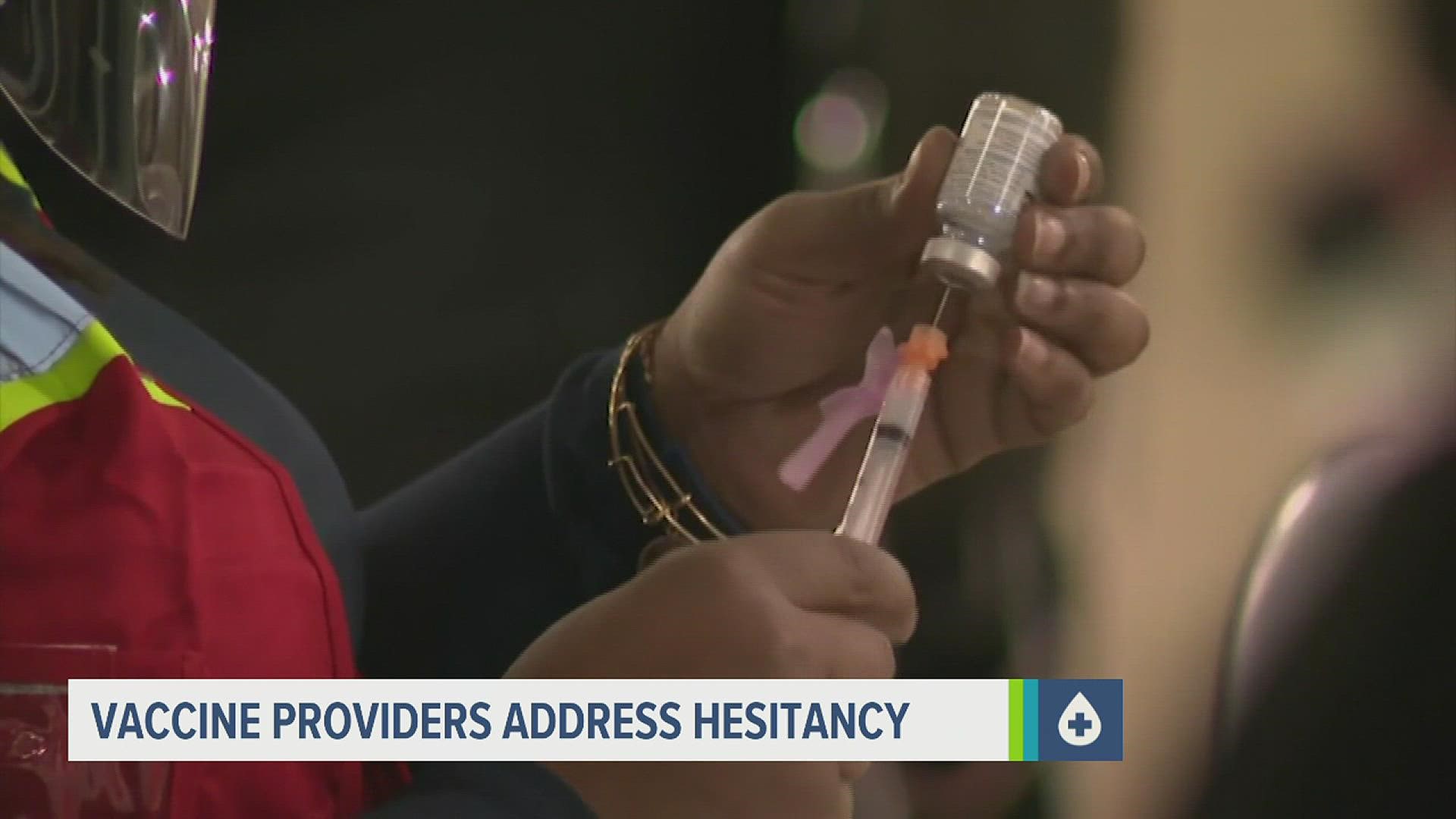HARRISBURG, Pa. — Since the COVID vaccine became publicly available early this year, the concerns surrounding it have largely evolved from limited availability to vaccine hesitancy. As those concerns shift, vaccine providers are adapting their approach to patients.
Since the rush to book a vaccine appointment in the spring of 2021, demand has imploded. In Pennsylvania total vaccinations were down 96 percent in four months, from 143,056 partial and full vaccinations on April 1 to 5,951 on Aug. 1, according to data from the state Department of Health.
“More people have gotten it that have wanted to get it so now we’re kind of getting the last bit of the stragglers that didn’t get it in the beginning of the year, in the early spring,” said Kimberly Craig, community program manager at Hamilton Health Center in Harrisburg.
Nearly everyone who wanted the vaccine has had the opportunity to get it by now, Craig said, so most of the people who aren’t yet vaccinated or who are just now scheduling an appointment have had some reservations.
“Not everyone is eager to be vaccinated, so the main thing is just getting the chance to listen to them and get them to tell you why either they do or don’t, and just being empathetic to their needs,” she said.
Craig has heard many reasons from patients in her Harrisburg community on why they have waited until now to get the shot.
“It definitely does get a little frustrating when people approach me about, they think that it’s microchipped or they feel like it’s a government plot,” Craig said.
She also hears from members of minority communities who feel they can’t trust the healthcare system in light of historical abuses like the Tuskegee Experiment, when between 1932 and 1972 the U.S. Public Health Service promised hundreds of impoverished Black men treatment for syphilis, but instead gave them ineffective medicine to study the advanced effects of the disease.
“Some of our patients had issues with being vaccinated, so it took them awhile to be [trusting] of the CDC and the FDA and all these vaccines,” Craig said.
Though the process of talking someone through their concerns takes more time, Craig said getting to a slow “yes” is still a “yes.”
“It’s definitely getting your patients to trust you and being patient with their needs and their concerns, and being understanding,” she said.
Currently 63.4 percent of Pennsylvanian adults have gotten at least one vaccine dose, below the national average of 71 percent.

